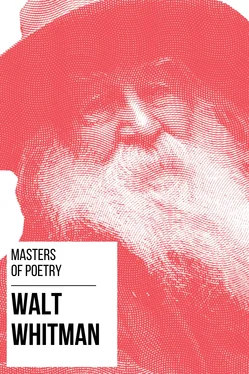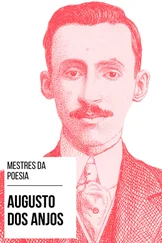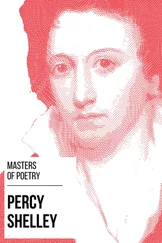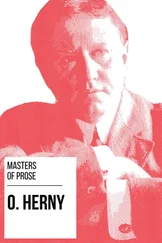The spirit that animates every page of his book, and that it always effuses, is the spirit of common, universal humanity,—humanity apart from creeds, schools, conventions, from all special privileges and refinements, as it is in and of itself in its relations to the whole system of things, in contradistinction to the literature of culture which effuses the spirit of the select and exclusive.
His life was the same. Walt Whitman never stood apart from or above any human being. The common people—workingmen, the poor, the illiterate, the outcast—saw themselves in him, and he saw himself in them: the attraction was mutual. He was always content with common, unadorned humanity. Specially intellectual people rather repelled him; the wit, the scholar, the poet, must have a rich endowment of the common, universal, human attributes and qualities to pass current with him. He sought the society of boatmen, railroad men, farmers, mechanics, printers, teamsters, mothers of families, etc., rather than the society of professional men or scholars. Men who had the quality of things in the open air—the virtue of rocks, trees, hills—drew him most; and it is these qualities and virtues that he has aimed above all others to put into his poetry, and to put them there in such a way that he who reads must feel and imbibe them.
The recognized poets put into their pages the virtue and quality of the fine gentleman, or of the sensitive, artistic nature: this poet of democracy effuses the atmosphere of fresh, strong Adamic man,—man acted upon at first hand by the shows and forces of universal nature.
If our poet ever sounds the note of the crude, the loud, the exaggerated, he is false to himself and to his high aims. I think he may be charged with having done so a few times, in his earlier work, but not in his later. In the 1860 edition of his poems stands this portraiture, which may stand for himself, with one or two features rather overdrawn:—
"His shape arises
Arrogant, masculine, naïve, rowdyish,
Laugher, weeper, worker, idler, citizen, countryman,
Saunterer of woods, stander upon hills, summer swimmer in rivers or by the sea,
Of pure American breed, of reckless health, his body perfect, free from taint from top to toe, free forever
from headache and dyspepsia, clean-breathed,
Ample-limbed, a good feeder, weight a hundred and eighty pounds, full-blooded, six feet high, forty inches
round the breast and back,
Countenance sunburnt, bearded, calm, unrefined,
Reminder of animals, meeter of savage and gentleman on equal terms,
Attitudes lithe and erect, costume free, neck gray and open, of slow movement on foot,
Passer of his right arm round the shoulders of his friends, companion of the street,
Persuader always of people to give him their sweetest touches, and never their meanest.
A Manhattanese bred, fond of Brooklyn, fond of Broadway, fond of the life of the wharves and the great ferries,
Enterer everywhere, welcomed everywhere, easily understood after all,
Never offering others, always offering himself, corroborating his phrenology,
Voluptuous, inhabitive, combative, conscientious, alimentive, intuitive, of copious friendship, sublimity,
firmness, self-esteem, comparison, individuality, form, locality, eventuality,
Avowing by life, manners, words to contribute illustrations of results of These States,
Teacher of the unquenchable creed namely egotism,
Inviter of others continually henceforth to try their strength against his."
Whitman was determined, at whatever risk to his own reputation, to make the character which he has exploited in his poems a faithful compend of American humanity, and to do this the rowdy element could not be entirely ignored. Hence he unflinchingly imputes it to himself, as, for that matter, he has nearly every sin and dereliction mankind are guilty of.
Whitman developed slowly and late upon the side that related him to social custom and usage,—to the many fictions, concealments, make-believes, and subterfuges of the world of parlors and drawing-rooms. He never was an adept in what is called "good form;" the natural man that he was shows crude in certain relations. His publication of Emerson's letter with its magnificent eulogium of "Leaves of Grass" has been much commented upon. There may be two opinions as to the propriety of his course in this respect: a letter from a stranger upon a matter of public interest is not usually looked upon as a private letter. Emerson never spoke with more felicity and penetration than he does in this letter; but it is for Whitman's own sake that we would have had him practice self-denial in the matter; he greatly plumed himself upon Emerson's endorsement, and was guilty of the very bad taste of printing a sentence from the letter upon the cover of the next edition of his book. Grant that it showed a certain crudeness, unripeness, in one side of the man; later in life, he could not have erred in this way. Ruskin is reported saying that he never in his life wrote a letter to any human being that he would not be willing should be posted up in the market-place, or cried by the public crier through the town. But Emerson was a much more timid and conforming man than Ruskin, and was much more likely to be shocked by such a circumstance.
It has been said that the publication of this letter much annoyed Emerson, and that he never forgave Whitman the offense. That he was disturbed by it and by the storm that arose there can be little doubt; but there is no evidence that he allowed the fact to interfere with his friendship for the poet. Charles W. Eldridge, who personally knew of the relations of the two men, says:—
"There was not a year from 1855 (the date of the Emerson letter and its publication) down to 1860 (the year Walt came to Boston to supervise the issue of the Thayer & Eldridge edition of 'Leaves of Grass'), that Emerson did not personally seek out Walt at his Brooklyn home, usually that they might have a long symposium together at the Astor House in New York. Besides that, during these years Emerson sent many of his closest friends, including Alcott and Thoreau, to see Walt, giving them letters of introduction to him. This is not the treatment usually accorded a man who has committed an unpardonable offense.
"I know that afterwards, during Walt's stay in Boston, Emerson frequently came down from Concord to see him, and that they had many walks and talks together, these conferences usually ending with a dinner at the American House, at that time Emerson's favorite Boston hotel. On several occasions they met by appointment in our counting-room. Their relations were as cordial and friendly as possible, and it was always Emerson who sought out Walt, and never the other way, although, of course, Walt appreciated and enjoyed Emerson's companionship very much. In truth, Walt never sought the company of notables at all, and was always very shy of purely literary society. I know that at this time Walt was invited by Emerson to Concord, but declined to go, probably through his fear that he would see too much of the literary coterie that then clustered there, chiefly around Emerson."
Whitman gave himself to men as men and not as scholars or poets, and gave himself purely as a man. While not specially averse to meeting people on literary or intellectual grounds, yet it was more to his taste to meet on the broadest, commonest, human grounds. What you had seen or felt or suffered or done was of much more interest to him than what you had read or thought; your speculation about the soul interested him less than the last person you had met, or the last chore you had done.
Any glimpse of the farm, the shop, the household—any bit of real life, anything that carried the flavor and quality of concrete reality—was very welcome to him; herein, no doubt, showing the healthy, objective, artist mind. He never tired of hearing me talk about the birds or wild animals, or my experiences in camp in the woods, the kind of characters I had met there, and the flavor of the life of remote settlements in Maine or Canada. His inward, subjective life was ample of itself; he was familiar with all your thoughts and speculations beforehand: what he craved was wider experience,—to see what you had seen, and feel what you had felt. He was fond of talking with returned travelers and explorers, and with sailors, soldiers, mechanics; much of his vast stores of information upon all manner of subjects was acquired at firsthand, in the old way, from the persons who had seen or done or been what they described or related.
Читать дальше












